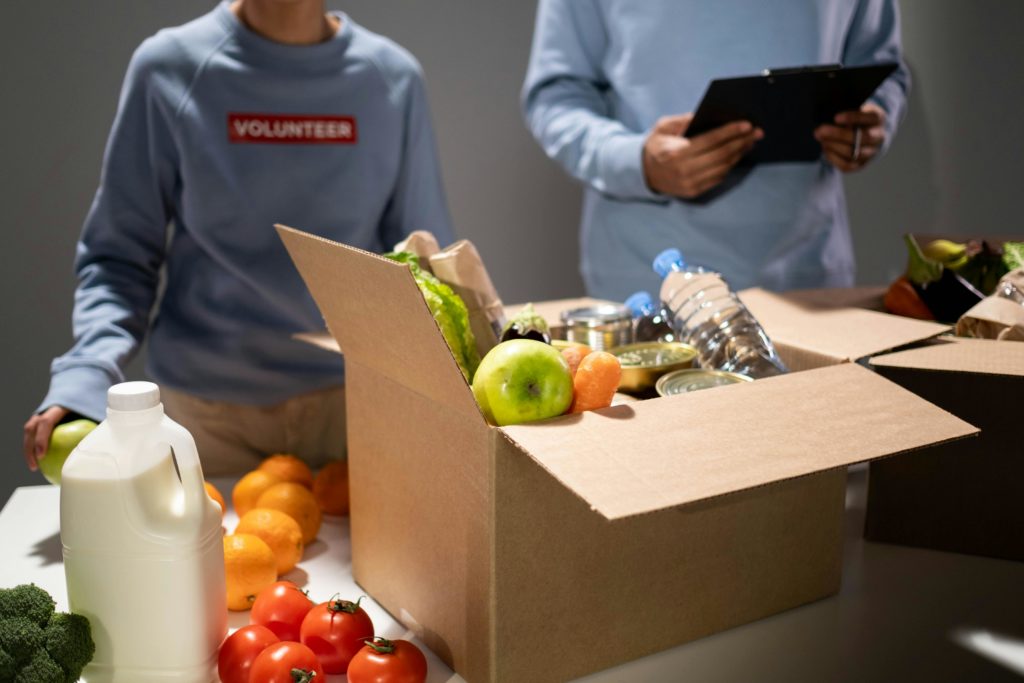Read time : 2 mins
Level : Intermediate

By Michael Dinich
The average American engages in five generous acts per week, totaling 260 random acts of kindness each year. What goes around comes around? That’s the belief of 84% of United States citizens asked by OnePoll on behalf of banking app Chime.
Another 84% say they will go out of their way to “pay it forward” whenever possible. This most often comes in the form of a special treat for their loved ones, generous tips, or helping out a neighbor, carrying their groceries, mowing their lawn, or helping them shovel snow.
Not all of these acts are attributed to karma, or an attempt to rebalance some cosmic scale. Some simply believe in the value of doing good deeds for others, regardless of whether or not they’re rewarded for it.
In fact, experts point out that the Sanskrit word refers more to a law of consequences than a particular reward or punishment system. That doesn’t stop many from blaming karma for their problems. Americans attribute bad relationships, losing something, and arguments with others to bad karma.
Generosity Goes a Long Way
Those five generous acts a week? Random acts of kindness include donating money to organizations or charities, volunteering their time to help out friends and family, and supporting small or locally owned businesses.
The top three ways Americans define “generosity” include “going out of your way to help someone else,” “giving your time,” and “paying it forward.”
These acts of paying it forward have real effects on more than those on the receiving end — Americans feel better about themselves and their lives overall, plus they feel more confident when they’re able to do so. True adherents to the karmic cycle say intention is key — so every act of generosity benefits the giver as well as the receiver. Think of it as cosmic win-win.
Despite less than half of all Americans currently feeling financially secure, nearly three-quarters (72%) consider themselves to be generous. And that’s true whether or not there’s a financial stake. Being generous and a good person could include donating your time or skills to a cause you really care about or helping out a family member who’s going through a tough time.
Several respondents shared personal, anonymous stories of being generous. “[I] opened my home for a friend to move in during a health crisis,” “I overheard a waitress discussing some unexpected bills she was worried about covering so left her a $200 tip,” and “I went to Mississippi after Hurricane Katrina to work on restoring houses.”
“These survey results highlight the generous spirit in our country, regardless of what they think about the world around them or their current financial situation. Despite only 43% feeling financially secure, results found that almost two-thirds (65%) are likely to ‘keep the chain going’ and pay for the food of the person behind them in a drive-thru if someone else paid for theirs,” says Sara El-Amine, Vice President of Community at Chime. “We’re encouraged to see that the ‘pay it forward’ spirit is alive and well in this country, despite some of the current economic challenges everyday people are facing.”
Americans are most likely to pay it forward without any prompting necessary. Others are influenced by a good mood or after someone else does something nice for them. Or generosity might strike when a loved one is celebrating a milestone or accomplishment.
No matter what triggers it, results also found that Americans are more than five times more likely to find that their spirits are lifted more when they’re able to help someone else out than when someone else helps them out (72% vs 13%).
Some respondents express that the rest of the United States has some work to do. 42% don’t feel the country generous.
Looking toward the future, an astounding 83% of respondents believe that they’d be even more generous if they were more financially secure. Financial security and progress look different for everyone, but two in five say that financial progress means being able to treat their family and friends or being able to donate to charity.
“Feeling good about your finances can mean more than just adding commas to your bank account. The results further emphasize that everyday people are considering others when managing their own financial progress,” explains El-Amine. “Someone’s financial situation should not be the thing holding them back from living generously.”
This article was produced by Media Decision and syndicated by Wealth of Geeks.
